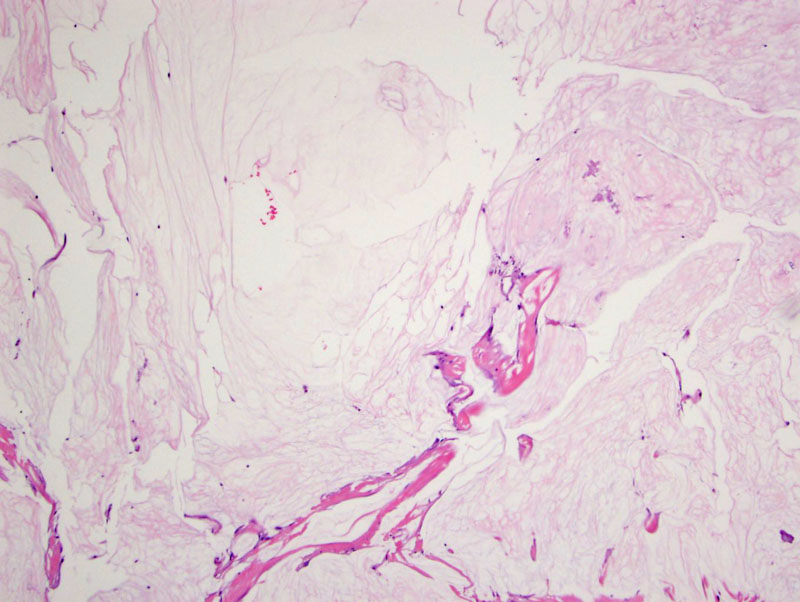

Large zones of acellular mucin dissect the stroma.
Small groups of malignant ductal epithelium with low grade features are float within the mucin pools
Islands of carcinoma cells float in the pools of mucin.
The tumor cells are fairly uniform and lack any significant atypia.
Mucinous carcinomas, also known as colloid or mucoid carcinomas, are a special subtype of invasive carcinomas of the breast with abundant mucin. They are uncommon and account for 1-4% of breast cancers in some series (Fletcher).
Grossly, these tumors have a gelatinous texture.
They are typically ER and PR positive and Her2 negative, which is a favorable biomarker profile. Note that in order to call an breast carcinoma a particular subtype, >90% of the tumor must exhibit the features of that particular histology. However, because diagnosing a mucinous carcinoma has important prognostic implications, some authors suggest that the tumor must be entirely mucinous (Mills).
Pure mucinous tumors have a statistically signficant better prognosis, with a lower percentage of axillary metastases and longer disease free survival. Mucinous tumors mixed with traditional ductal carcinoma behave more like the traditional component. The better prognosis of mucinous tumors therefore applies only to those in pure form.
→Improved prognosis compared to other invasive breast carcinomas.
Fletcher CDM, ed. Diagnostic Histopathology of Tumors. 3rd Ed. Philadelphia, PA: Elsevier; 2007: 935.
Mills SE, ed. Sternberg's Diagnostic Surgical Pathology. 5th ed. Philadelphia, PA: Lippincoott Williams & Wilkins; 2009: 324-5.